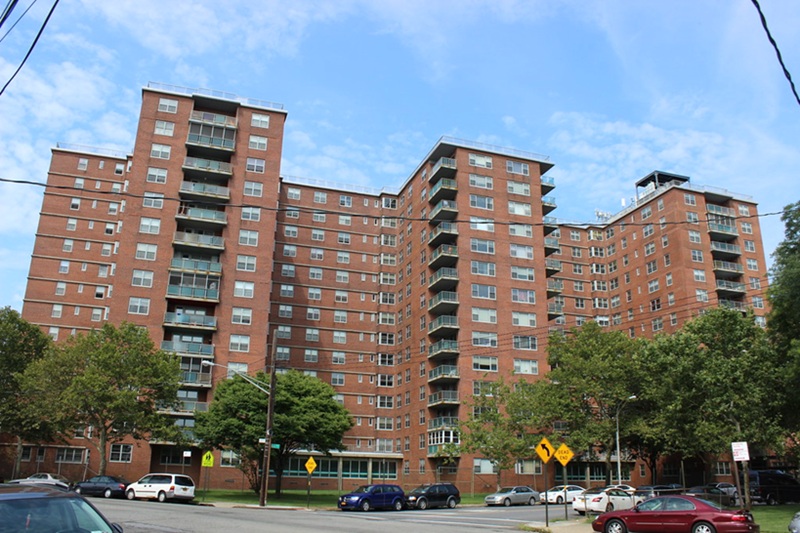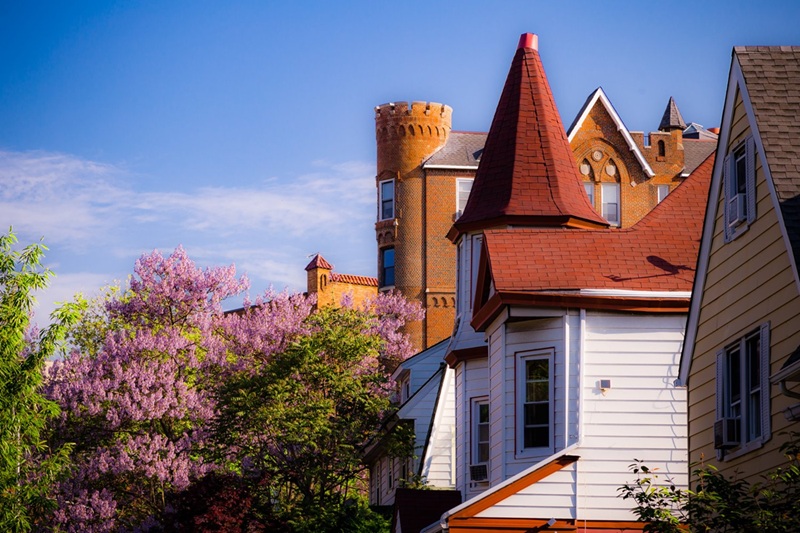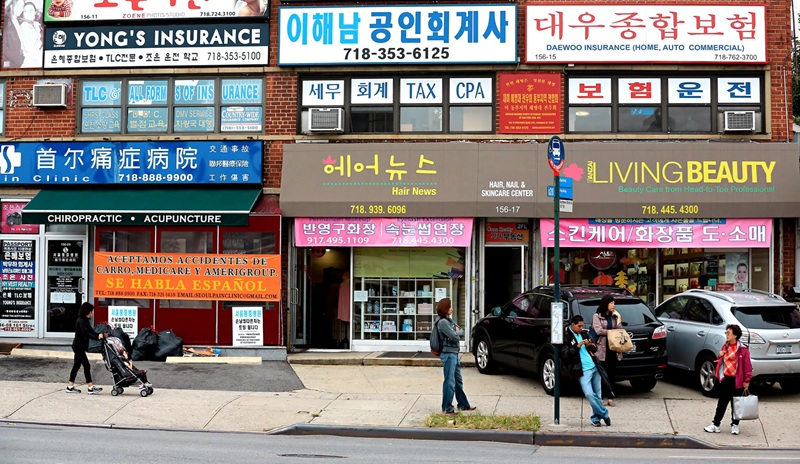
Located in the southeastern part of Queens, New York, Rochdale is a neighborhood that blends residential comfort with a deep historical background. Named after the town of Rochdale in England, this community offers a diverse, multicultural atmosphere, with a strong sense of community pride and connection. Although historically an area of working-class roots, Rochdale has experienced significant changes over the years, with growth and development continuing to shape its future.
Rochdale is a predominantly residential area, characterized by its mix of single-family homes, apartment buildings, and co-ops. Its location offers convenient access to transportation, schools, parks, and shopping, making it an increasingly attractive place to live, especially for families and young professionals. Though it’s somewhat quieter compared to some of the other neighborhoods in Queens, Rochdale has carved out a unique identity that blends historical charm with modern-day amenities.
History of Rochdale: From Farmland to Residential Community
Rochdale’s origins date back to the 19th century, when it was primarily farmland. Originally part of the Town of Jamaica, the area remained largely rural for many years. The community began to develop in the late 1800s and early 1900s as Queens itself experienced significant urbanization. The introduction of mass transit, including the Long Island Rail Road (LIRR) and later the development of major roadways, helped make Rochdale more accessible to people working in other parts of the city.
During the mid-20th century, Rochdale saw a shift toward becoming a residential neighborhood. As many working-class families moved to the area for more affordable housing options, new homes and apartment buildings began to dot the landscape. The housing boom of the 1950s and 1960s, combined with the growing immigrant population, contributed to Rochdale’s transformation into a lively and diverse community.
Cultural Diversity and Community Vibe
One of the defining features of Rochdale is its cultural diversity. The neighborhood is home to a mix of African American, Caribbean, Latino, and South Asian communities, contributing to its dynamic atmosphere. Over the years, immigrants from the Caribbean, especially Jamaica and Trinidad, have played a significant role in shaping the local culture. This influence is especially noticeable in the local businesses, food, and community events.
The variety of cultural backgrounds in Rochdale is also reflected in the neighborhood’s churches, mosques, and temples, which serve as important cultural hubs for the community. The diversity fosters a sense of unity, where traditions from various parts of the world come together to create a rich cultural mosaic.
The community spirit in Rochdale is strong, and local organizations are deeply involved in preserving the neighborhood’s heritage while helping to improve the lives of its residents. The Rochdale Village Community Association is one of the primary groups focused on promoting neighborhood engagement and improving the quality of life for residents.
Residential Living and Housing Options
Rochdale offers a variety of housing options that cater to families, renters, and homeowners alike. One of the neighborhood’s standout features is Rochdale Village, a large cooperative housing complex that houses over 20,000 residents. Established in the 1960s, Rochdale Village is one of the largest co-op communities in Queens. It offers affordable living spaces for individuals and families, with amenities such as parks, playgrounds, and community centers, making it a popular choice for those looking for an inclusive, family-friendly environment.
In addition to Rochdale Village, the neighborhood is home to a mix of single-family homes, multi-family buildings, and apartment complexes. Many of the homes in the area are well-maintained and feature classic mid-20th-century architecture, with suburban-style homes and townhouses. As the neighborhood continues to attract new residents, there is a growing demand for housing, especially as other parts of Queens and nearby Brooklyn become increasingly expensive.
Despite its proximity to more expensive neighborhoods in Queens, such as Jamaica Estates and South Richmond Hill, Rochdale remains one of the more affordable areas in the borough. The lower cost of living has made it an appealing choice for families and individuals looking to put down roots without paying the steep rents or home prices found elsewhere in the city.
Transportation and Accessibility
Rochdale benefits from excellent transportation options, making it easy for residents to travel around Queens and New York City. The neighborhood is served by several bus routes, including the Q4, Q5, and Q6, which connect the area to key locations throughout the borough and into Manhattan.
For those who prefer to take the subway, the A train at the Far Rockaway-Mott Avenue station provides direct access to Lower Manhattan, as well as parts of Brooklyn. The Long Island Rail Road (LIRR) also has stations nearby, providing commuters with quick access to other parts of Queens and Nassau County on Long Island. For residents who drive, the Southern State Parkway and Belt Parkway provide easy access to neighboring areas like Brooklyn and Long Island, while JFK International Airport is just a short drive away.
Rochdale’s access to major transportation routes and its proximity to both public transit and highways make it an attractive option for people who need to commute for work or enjoy the convenience of travel.
Education and Schools
Rochdale is served by the New York City Department of Education (NYC DOE), which provides access to a range of public schools in the area. The neighborhood features both elementary and middle schools, many of which are highly regarded for their dedicated staff and community involvement. Nearby high schools and charter schools also provide additional options for students in the area.
For families with children, the presence of local schools, parks, and recreational facilities makes Rochdale an ideal location. In addition to public schooling, the neighborhood is home to a variety of after-school programs and community-driven initiatives that help support children and young adults.
Rochdale is also conveniently located near higher education institutions, such as Queens College in Flushing, and a range of adult education programs and trade schools that provide opportunities for personal and professional development.
Parks and Recreation
While Rochdale is primarily a residential neighborhood, it offers access to a number of parks and green spaces. Rochdale Park, located within the neighborhood, provides ample space for outdoor activities, including walking, picnicking, and sports. The park features playgrounds, basketball courts, and athletic fields, making it a popular spot for families and recreational enthusiasts.
Nearby, Springfield Park offers additional green space for residents to enjoy, with walking trails, playgrounds, and sports facilities. For those who enjoy outdoor recreation, the park provides a peaceful retreat from the hustle and bustle of city life.
The proximity of these parks makes Rochdale an appealing option for individuals and families who want to have access to green spaces for relaxation and outdoor activities, without leaving the neighborhood.
Shopping, Dining, and Local Amenities
Rochdale has a variety of shopping and dining options that reflect its diverse population. Jamaica Avenue, one of the main commercial corridors running through the area, offers an array of shops, including local grocery stores, clothing boutiques, and electronics shops. The Avenue is also home to several international markets, where residents can find fresh produce, spices, and other goods from around the world.
For dining, Rochdale is known for its mix of Caribbean, Latin American, and American restaurants. The neighborhood boasts numerous restaurants serving everything from jerk chicken and roti to Mexican tacos and Dominican mofongo, reflecting the multicultural makeup of its residents. There are also several cafes, bakeries, and delis where locals can grab a quick bite or enjoy a leisurely meal.
In addition to its dining and shopping options, Rochdale offers access to various community services, including local libraries, medical facilities, and community centers that provide programs for all ages. The Rochdale Village Shopping Center is a major commercial hub that features supermarkets, pharmacies, and a variety of retail stores that meet the daily needs of residents.
Conclusion
Rochdale, Queens, offers a unique blend of affordability, convenience, and cultural diversity, making it an attractive choice for families, young professionals, and long-time residents. With its strong sense of community, historical significance, and growing real estate market, the neighborhood continues to evolve while maintaining its roots in working-class tradition. Whether you’re looking for a family-friendly environment, access to transit, or an affordable place to call home in New York City, Rochdale provides an appealing option for those seeking the right balance between suburban tranquility and urban convenience.

